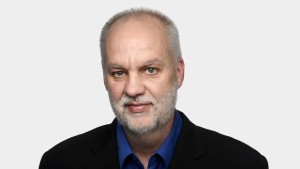 We learn from our mistakes, at least some do. The Toronto Maple Leafs won their last cup in 1967. Maybe the saying should be,
We learn from our mistakes, at least some do. The Toronto Maple Leafs won their last cup in 1967. Maybe the saying should be,
“Some people learn from their mistakes, but most rarely take the opportunity.”
Ontario’s doctors see 2004 and 2008 as big wins. By 2012, docs had finally caught up to inflation after losing since 1986. While everyone takes credit for the victory, the feds probably deserve most valuable player. They shovelled billions as Canada Health Transfers starting in 2004 growing at 6% per year, $13 billion in fiscal year 2015-16.
It created a new economy in healthcare. Relationships and collaboration ruled the day. Cooperation reformed primary care for the first time since Confederation. Bureaucrats and physicians partied at the same events.
But every binge ends poorly. Liberal governments have a fierce and jealous love of debt. Ontario now has more of it than any sub-sovereign borrower in the world.
MD-Government Relations
The economy collapsed in 2008, the biggest slump since 1930. It happened just after Ontario signed a 4 year deal with doctors. The government was too weak to renege, even though it tried in 2011. So government took revenge in 2012 and has abused doctors ever since. It looks like the fights of 1970-2003.
Doctors need to refocus, start over with reaffirmed thinking.
New Perspective
- Do we want a physician services agreement or the freedom for physicians to serve?
- Should doctors focus on special programs or basic principles?
- Do doctors value partnership with government more than self respect?
- Are some things more important than getting ‘stability’ or a small raise?
New Process
- Are we best served by a small group of physicians negotiating on our behalf?
- Do we need a Buzz Hargrove to guide us?
- Do we need new blood with innovative thinking?
- How should our structure change to deliver different results?
New Presuppositions
- Do we believe government bureaucracy can ever manage healthcare?
- Is more government better?
- Are doctors the cause of all, or most of, the problems in healthcare, or are they the solution?
- Does the Canada Health Act give government the right to usurp control of healthcare?
- Should public administration refer only to the collection and distribution of taxes?
- Should the government provide oversight or micro management?
Fail Fast
A great leader said recently, “Fail fast.” Pay attention to performance and abandon losing strategies. Failure is inevitable. Repeating failure is not.
Doctors fought hard in the 60s and 70s. But after a few years of Medicare, doctors could not deny that universal everything is a really nice way to practice.
Until the money runs out. And be sure of this, doctors will get blamed as services and access decline.
Will doctors try to mend relationships and recreate the glow from ’04 and ’08, more of the same? Will we become the Toronto Maple Leafs of medicine?
photo credit: thestar.com


